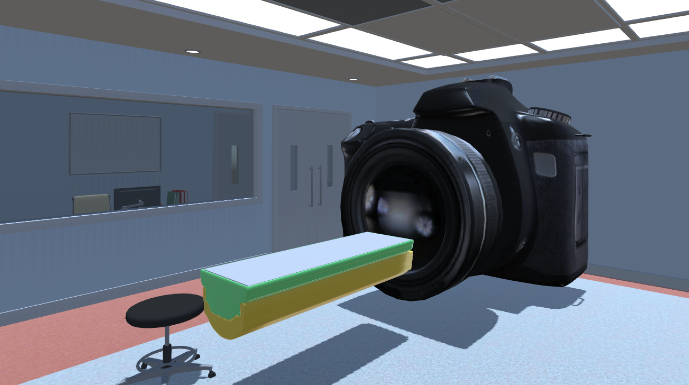Virtual reality Mock MRI 2019
MRIs are scary procedures for kids.
In pediatrics, using an MRI can be a daunting and scary procedure for the children about to undertake the exam. In research scenarios, literature states that when working with pediatric subjects up to 30% of MRI data is unusable due to excess motion or fear during the scan. The economic impact of this loss of data accounts for tens of million dollars of research funding annually. For clinically necessary scans, a child will be sedated if they are unable to stay still or comply with behaviors necessary for the procedure. 4 million children are sedated annually for medical procedures and evidence suggest .1% of those experience severe adverse effects as a result of anesthesia. Sedation and the side effects of the anesthesia exposed to patients dramatically increase the danger of the procedure, increasing hospital liability and procedures take twice as long as when the subject is awake.
The second major iteration to the Virtual Reality Mock Scanner has much improved graphics, UI, storytelling and embraces human centered design. After the MIT Reality Virtually Hackathon I realized the power of storytelling and how difficult it can be applying my education and breaking past habits. The first iteration was cold and clinical, a reflection of my time in academia.
I reimagined the experience, focused efforts on user testing with kids, received feedback from clinicians, and most importantly connected to the users kids in hospital settlings and the clinicians administering the Mock Scanner.
The Virtual Reality MRI Mock Scanner is a virtual exposure therapy experience for children who are about to undergo an MRI. The child simply puts on a virtual reality headset, and is shown a CGI recreation of the MRI experience. The child is familiarized with a virtual radiology suite, is habituated to the sounds of the scanner, and is trained to stay still during an MRI in order to get quality images. Furthermore, using the native motion tracking sensors in virtual reality headsets, the VR MRI Mock Scanner can measure the child’s head movement and provide visual stimuli telling the participant when excessive motion has taken place.
The VR Mock MRI is currently being piloted at Children’s Hospital Los Angeles and Stanford Children’s Hospital. We are working closely with the Palliative Care team, Radiologists, Child Life Specialists, and patients to bring to the best experience possible.
Feel free to email me for more information. We are poised to bring this to as many institutions as possible to reduce the number of sedations nation-wide.



